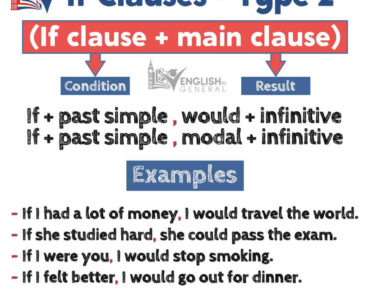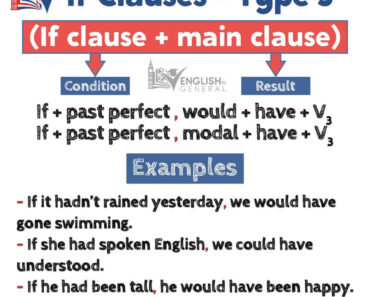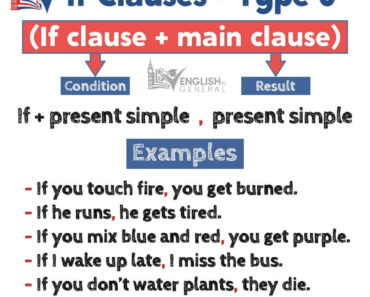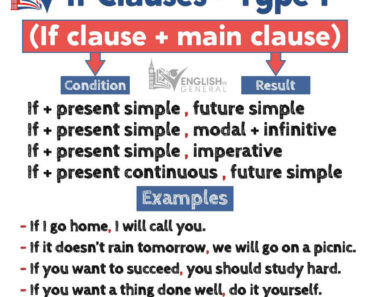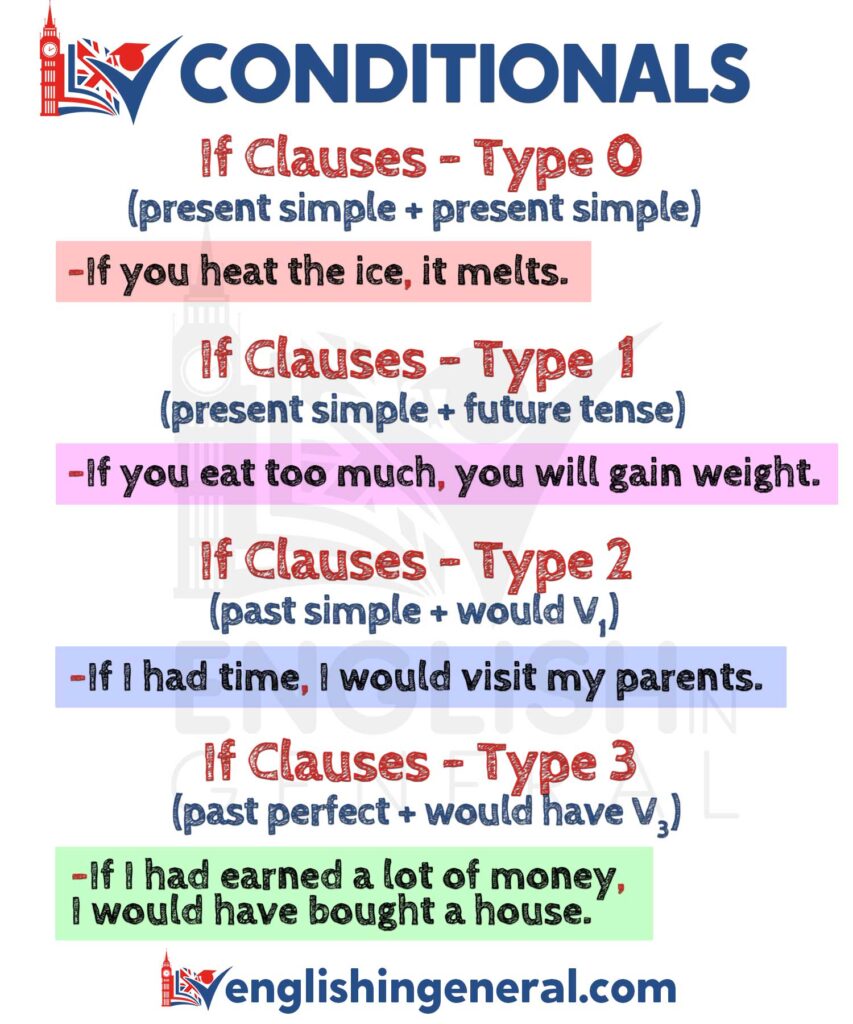
English grammar distinguishes three types of conditional clauses. Here you will find an explanation of these so-called if-clauses.
Explanation: conditional clauses – if clauses
Conditional clauses – so-called if clauses – always consist of two parts: a condition, which is described in the subordinate clause, and the main clause, in which the sequence is specified.
Example:
If my sister save some money, she can buy a new car.
The sequence of times to be used differs depending on the condition. The English grammar distinguishes between three types of conditional clauses, which are described below.
Zero conditional
The Zero Conditional consists of two sub-clauses. One of them usually starts with if and specifies the condition and the other summarizes the result. The order of the partial sentences does not matter. However, if the if-sentence is at the beginning, a comma must separate the sub-clauses. The if-clauses and the zero conditional have all this in common. The simple present is used for the zero conditional, so it is very easy to form:
Example:
If you touch that fire, you get burned.
If babies are hungry, they cry.
The sentences in the Zero Conditional are very simple. Instead of if, you can sometimes use when or whenever:
Whenever you have a problem, you can call me.
When I meet Joy, we always have a lot of fun.
Real conditional sentence
If it is a real condition that has already been met or is very likely to be met in the future, the subordinate clause is in the simple present and the main clause in the will-future.
Structure:
Subject + will / ’ll + infinitive … if + subject + simple present
If + subject + simple present …, subject + will / ’ll + infinitive
Examples:
If it rains tomorrow, I’ll go to the fitness studio.
I won’t go to the swimming lesson if it rains tomorrow.
DANGER!
Conditional clauses can start either with the main clause or with the subordinate clause. A comma must only be used in the subordinate clause (i.e. the if clause) is at the beginning of the sentence. If the main sentence is at the beginning of the sentence, then no comma is used.
Unreal conditional sentence
If it is a condition that relates to a current or future event and whose fulfillment is improbable but not impossible, a simple past must be used in the subordinate clause and the conditional 1 in the main clause.
Structure:
Subject + would / ’d + infinitive … if + subject + simple past
If + subject + simple past…, subject + would / ’d + infinitive
Examples:
If I won the lottery, I’d go on a world travel.
She would be sad if she failed her grammar exam tomorrow.
Impossible conditional sentence
If the condition relates to an event in the past and has not been fulfilled, the subordinate clause contains past perfect and the main clause contains the conditional 2.
Structure:
Subject + would / ’d have + past participle … if + subject + past perfect
If + subject + past perfect…, subject + would / ’d have + past participle
Examples:
If it had rained yesterday, Marissa wouldn’t have gone to the beach.
Marissa would have gone to the beach if it hadn’t rained.
If it was cold in the morning, I wouldn’t have to take a walk.
I would have to take a walk if it wasn’t cold.

